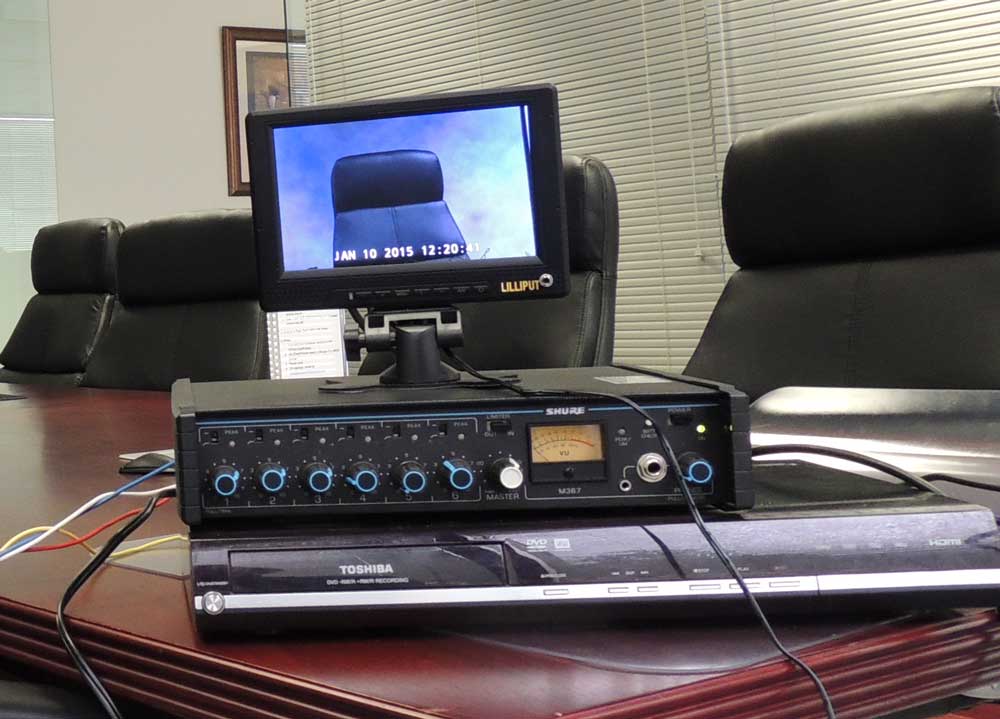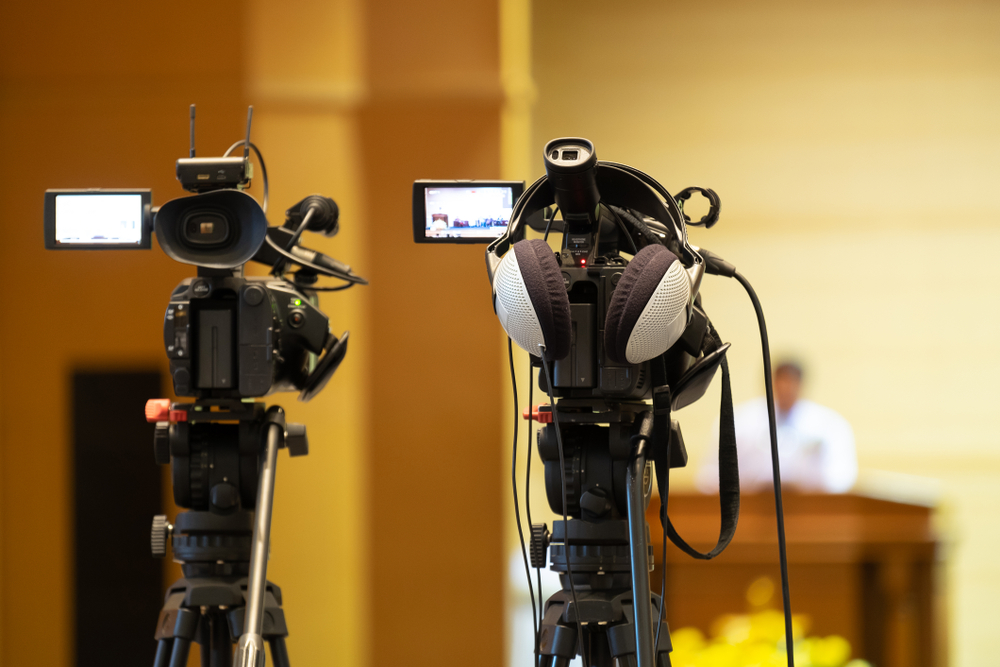The Importance of Legal Video Clip Depositions in Modern Legal Providers: What You Need to Know
Lawful video clip depositions have actually ended up being vital in today's legal landscape. They offer a multidimensional sight of witness testaments that standard records just can not match. By capturing both verbal and non-verbal communication, these depositions enhance the general understanding of a witness's integrity. The efficiency of video clip depositions pivots on numerous variables, consisting of conformity with lawful requirements and finest practices. Checking out these components exposes their true relevance in modern-day lawful services
What Are Legal Video Clip Depositions?
Legal video depositions function as an important device in the lawsuits process. They include videotaping witness testimonies in a video clip layout, capturing both spoken and non-verbal interaction. This method enables lawyers to record the behavior, expressions, and responses of witnesses, providing a richer context for the statement. Commonly conducted in a controlled atmosphere, these depositions are led by lawyers that ask inquiries while a stenotype reporter records the dialogue. The resulting video clip can be critical for trial preparation, as it allows attorneys to analyze the reliability of witnesses and fine-tune their methods. In addition, lawful video clip depositions can be utilized in various legal contexts, ranging from civil disputes to criminal situations. The visual and auditory aspects of video clip depositions improve the discussion of proof, making it a crucial part in the modern legal landscape. Overall, they contribute considerably to the efficiency and effectiveness of legal proceedings.

Advantages of Video Clip Depositions Over Traditional Methods
Video clip depositions supply countless benefits compared to conventional methods of taking witness testimonies. One significant advantage is the capacity to catch both visual and audio elements, providing an extra detailed document of the witness's statements. This double format boosts quality and enables lawyers to reference specific subtleties throughout trial prep work. In addition, video depositions help with remote participation, making it less complicated for witnesses that may be unavailable for in-person looks because of geographical constraints or health issues.Moreover, video clip depositions can speed up the overall deposition procedure, decreasing the time and expenses connected with traveling and logistics. They likewise enhance accessibility, as recorded depositions can be conveniently shared among lawful groups and referenced any time. This comfort adds to better case administration and preparation. In general, video depositions represent a modern, reliable approach to gathering witness testaments, aligning with the advancing needs of the lawful occupation.
The Role of Body Language and Tone in Testimonies

In legal video clip depositions, body movement and tone play important functions in conveying a witness's reputation and credibility. Nonverbal hints can give insights into a witness's emotion, affecting just how their testimony is perceived. Comprehending the impact of these components is vital for jurors and lawyers alike when evaluating the reliability of a testimony.
Nonverbal Communication Insights
While verbal communication is commonly stressed in lawful testimonies, nonverbal cues such as body language and tone play a necessary duty in sharing credibility and emotion. Observers of depositions may note that a witness's posture, gestures, and faces can considerably influence understandings of dependability. For example, constant eye get in touch with may indicate confidence, while avoiding gaze could suggest dishonesty or discomfort. The tone of voice-- its pitch, pace, and quantity-- can impart sensations of genuineness or uncertainty. Legal professionals should be in harmony with these nonverbal signals, as they often offer important context that enhances talked words. Understanding these nuances can improve the performance of depositions and affect the outcome of legal proceedings.
Emotional Tone Influence
The emotional tone shared throughout legal testaments significantly influences just how a witness is viewed. Body language, vocal inflections, and facial expressions play crucial roles fit the narrative of a testament. A witness showing confidence through constant eye get in touch with and a calm tone can infuse a sense of reliability and interaction. On the other hand, indications of anxiety, such as fidgeting or an unsteady voice, may bring about skepticism concerning their account. The nuances of emotional expression can affect the analysis of facts, making it necessary for attorneys to identify these cues. In video depositions, the auditory and visual parts combine, highlighting the value of emotional tone in conveying genuineness and reliability within the lawful process.
Integrity and Trustworthiness
A crucial consider establishing trustworthiness and reliability during testimonies hinges on the witness's body movement and intonation. Viewers often rely on non-verbal hints-- such as eye get in touch with, pose, and motions-- to analyze a witness's sincerity. A witness who maintains eye get in touch with and shows open body language may be viewed as more trustworthy and sincere than one that prevents eye get in touch with or appears closed off. Additionally, tone of voice plays a vital role; a stable, calm tone can reinforce the credibility of the testimony, while fluctuations in pitch or quantity might elevate uncertainties. Inevitably, the mix of body language and vocal tone greatly affects exactly how a witness's statements are received and analyzed in a lawful context.
Finest Practices for Conducting Video Clip Depositions
Carrying out video depositions calls for cautious planning and implementation to ensure a effective and clear discussion of statement. First, it is vital to select a quiet, well-lit area to lessen interruptions and safe and secure optimum video top quality. The equipment must be evaluated ahead of time, consisting of cameras, microphones, and illumination, to avoid technological issues throughout the deposition.Next, parties entailed should assess the format and treatments beforehand, seeing to it that everyone recognizes their roles. The deponent must be informed on the procedure, including exactly how to react clearly and concisely.Additionally, keeping a professional demeanor throughout the session is vital. This consists of avoiding speaking over one an additional and validating that all questions are guided suitably. Ultimately, it is critical to tape-record the deposition in a style that permits easy playback and review, protecting the stability of the testament for future usage.
Lawful Factors To Consider and Conformity Issues
Just how do lawful factors to consider and conformity concerns influence the performance of video depositions? Attorneys must navigate a complex landscape of regulations, guaranteeing that video depositions abide by jurisdictional guidelines and requirements. Compliance with visit this site laws concerning personal privacy, consent, and recording methods is essential. Acquiring explicit consent from all events entailed is needed to prevent legal repercussions.Additionally, the admissibility of video clip evidence in court can hinge on conformity with step-by-step demands. Ensuring that the tools made use of satisfies technical criteria is likewise important, as inadequate high quality can undermine the deposition's reliability.Moreover, lawyers need to know any certain state regulations that regulate video clip depositions, as these can differ greatly. Failing to deal with these factors to consider can not just jeopardize the stability of the deposition but additionally affect the total situation approach, eventually affecting the customer's legal end results.
How Video Clip Depositions Impact Court Perception
While video depositions can work as powerful devices in legal process, their influence on jury assumption is considerable. The acoustic and aesthetic elements of video clip recordings provide jurors with a much more thorough understanding of witness behavior, reliability, and psychological feedbacks. This multimedia method can boost the jurors' ability to evaluate the integrity of testimony contrasted to standard text-based transcripts.Moreover, video clip depositions allow jurors to observe body language, tone of voice, and face expressions, every one of which can influence their interpretation of the witness's statements. The existence of a witness on display can humanize them, cultivating empathy and connection, which may persuade jurors' point of views. Alternatively, a witness who appears undependable or incredibly elusive on video may result in unfavorable assumptions that affect a court's choice. Ultimately, the dynamic nature of video depositions plays a crucial function fit just how jurors translate proof and reach their decisions.
The Future of Video Clip Depositions in Legal Method
As innovations in modern technology proceed to improve the legal landscape, the future of video clip depositions is positioned for substantial evolution. Innovations such as synthetic intelligence, online reality, and enhanced video conferencing tools are anticipated to streamline the deposition procedure and boost access. Lawyers might use AI-driven analytics to evaluate witness integrity and situation stamina much more effectively.Moreover, the integration of virtual fact can enable juries to experience immersive simulations of depositions, providing much deeper context and understanding. Furthermore, the trend toward remote depositions is most likely to continue, providing greater adaptability for clients and lawyers site alike.As remote work becomes significantly stabilized, video depositions will likely come to be typical method, reducing prices and time restrictions associated with traditional approaches. In general, these technical improvements promise to boost the effectiveness, effectiveness, and access of video depositions in lawful method, ultimately changing just how attorneys plan for trial.
Regularly Asked Questions
Exactly How Much Do Legal Video Clip Depositions Generally Price?

Can Video Clip Depositions Be Used in Any Type Of Kind of Case?
Video clip depositions can be made use of in various kinds of instances, including civil, criminal, and household regulation. Their flexibility enables lawyers to present witness statements properly, adapting to the particular demands of various legal circumstances.
What Devices Is Required for a Video Deposition?
To conduct a video clip deposition, crucial equipment includes a top notch camera, microphone, lighting, and a trustworthy recording tool. Additionally, a computer with editing software may be required for Recommended Site post-production and formatting the final video clip.
The length of time Does a Regular Video Deposition Last?
A regular video clip deposition lasts in between 2 to 4 hours, depending upon the intricacy of the instance and the variety of inquiries presented. Extended sessions might occur, yet breaks are normally integrated for participant comfort.

Are Video Clip Depositions Admissible in Court?
Video depositions are typically permissible in court, supplied they stick to lawful standards and rules of evidence. Their use improves quality and protects witness statement, assisting in the judicial process during hearings and tests. Legal video depositions have actually ended up being vital in today's lawful landscape. Additionally, legal video depositions can be used in numerous lawful contexts, varying from civil conflicts to criminal instances. In addition, video clip depositions facilitate remote participation, making it less complicated for witnesses that may be unavailable for in-person looks due to geographical restraints or health and wellness issues.Moreover, video clip depositions can quicken the overall deposition procedure, decreasing the time and expenses connected with travel and logistics. Making certain that the equipment utilized meets technical criteria is likewise essential, as poor top quality can undermine the deposition's reliability.Moreover, lawyers should be mindful of any type of specific state legislations that regulate video clip depositions, as these can differ greatly. In addition, the pattern toward remote depositions is most likely to persist, providing better adaptability for customers and lawyers alike.As remote work comes to be significantly stabilized, video depositions will likely become typical practice, decreasing costs and time restrictions associated with typical approaches.